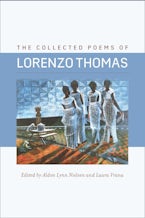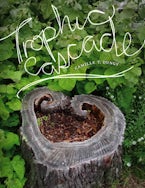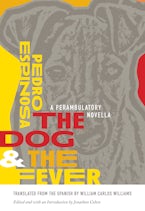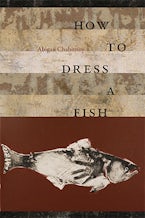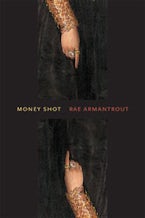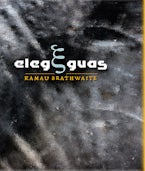
Deeply felt requiems from an internationally celebrated poet
Kamau Brathwaite is a major Caribbean poet of his generation and one of the major world poets of the second half of the twentieth century. Elegguas—a play on "elegy" and "Eleggua," the Yoruba deity of the threshold, doorway, and crossroad—is a collection of poems for the departed. Modernist and post-modernist in inspiration, Elegguas draws together traditions of speaking with the dead, from Rilke's Duino Elegies to the Jamaican kumina practice of bringing down spirits of the dead to briefly inhabit the bodies of the faithful, so that the ancestors may provide spiritual assistance and advice to those here on earth. The book is also profoundly political, including elegies for assassinated revolutionaries like in the masterful "Poem for Walter Rodney."
Throughout his poetry, Brathwaite foregrounds "nation-language," that difference in syntax, in rhythm, and timbre that is most closely allied to the African experience in the Caribbean, using the computer to explore the graphic rendition of nuances of language. Brathwaite experiments using his own Sycorax fonts, as well as deliberate misspellings ("calibanisms") and deviations in punctuation. But this is never simple surface aesthetic, rather an expression of the turbulence (in history, in dream) depicted in the poems. This collection is a stunning follow-up to Brathwaite's Born to Slow Horses (Wesleyan, 2005), winner of the Griffin International Poetry Prize.
Letter to Zea Mexican (1)
Aunt Lucille
Elegy for Rosita
Circle(s)
Harlem
Duke
Mesongs
Letter to Zea Mexican (2)
Cherries
Poem for Walter Rodney
Stone
Défilée
Xangô at the Summer Solstice
Ark
This sweet windpersonpoem
Tell me how close (1)
Tell me how close (2)/DChad
Tell me how close (3)
fflute(s)
Yemanjaa
Letter to Zea Mexican (3)
KAMAU BRATHWAITE (1930–2020) was an internationally celebrated poet, performer, and cultural theorist. He won numerous awards, including the Neustadt International Prize for Literature and the Griffin Poetry Prize. A retired professor of comparative literature at New York University, Brathwaite lived in CowPastor, Barbados.
"Elegguas sings with anger and righteousness, but the balm of tender creation emanates from its overtones."
~Alexandria Yurkovsky, San Francisco Chronicale
"Through letters, verses, and songs, Brathwaite's collection develops an eternal connection between the human world and the divine."
~Sadiqa Beg, Wasafiri
"There is a passion that is universal in these works, a sorrow and a soaring as in jazz, the music a song of protest and promise, pride and hurt. Though perhaps our accents and intonations would make an islander laugh, these poems should be read aloud too (the phrasing and dramatic gravitas almost demands it)."
~Iconoclast
"Brathwaite shifts tones as seamlessly as he does dialects; I finished Elegguas filled with melancholy, joy, and an odd, and I hope not inappropriate, envy for the multiple tongues and moods he moves among with such dexterity and eloquence."
~Jeff Gundy, Poetry Salzburg Review
"This collection is a wonderful experience, highly recommended for both experienced and new Brathwaite readers."
~Elaine Savory, Review: Literature and Arts of the Americas
"Brathwaite is a poet capable of great eloquence and elegancemusical precisionand inventiveness, as in the style of script he has fashioned that is both the reflection of and the antithesis of the spoken word."
~Sima Rabinowitz, NewPages
"For nearly half a century, Kamau Brathwaite has been doing nothing short of rewriting the relationship between Africa and the aging 'new world'—one exquisite and haunting syllable at a time. Elegguas, his newest book, is a tidalectic wave of remembrance and remonstrance. It is, as well, one of Brathwaite's most compassionate songs."
~Mark Nowak, author of Coal Mountain Elementary
"For nearly half a century, Kamau Brathwaite has been doing nothing short of rewriting the relationship between Africa and the aging 'new world'—one exquisite and haunting syllable at a time. Elegguas, his newest book, is a tidalectic wave of remembrance and remonstrance. It is, as well, one of Brathwaite's most compassionate songs."
~Mark Nowak, author of Coal Mountain Elementary
"Kamau Brathwaite is the major Caribbean poet of his generation and one of the great poets of the second part of the 20C anywhere. While framed by elegiac writings of a personal nature, this volume remains profoundly political through a range of elegies for departed public & political figures, and includes what I consider one of the greatest and most poignant political poems of the era, namely Brathwaite's 'Poem for Walter Rodney.' The greatness of the work lies in the fact that the poet never falls into political rhetoric, but that his language, breathtakingly innovative & inventive at the formal level, always carries a lyrical and poetic charge of unequalled intensity."
~Pierre Joris, author of Poasis and A Nomad Poetics


